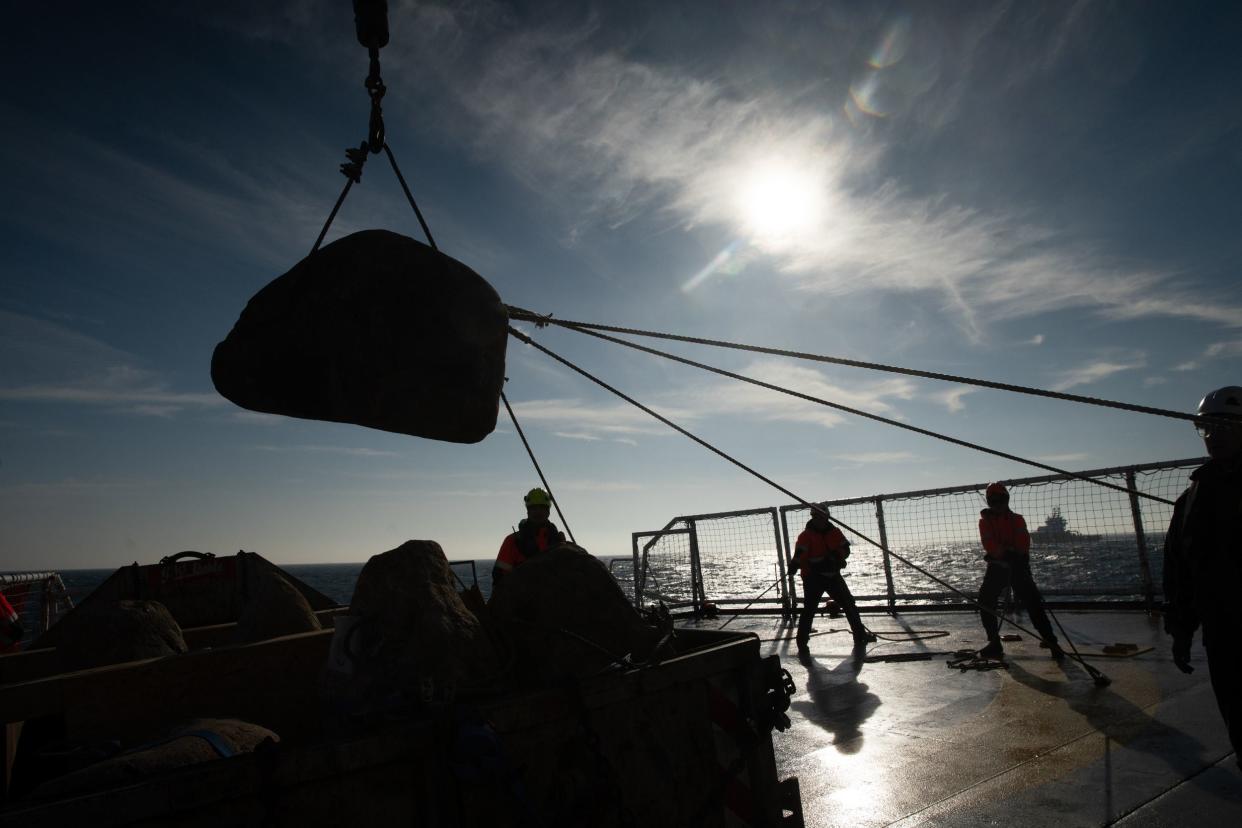Greenpeace drop boulders into English Channel to disrupt fishing

Celebrities including Ranulph Fiennes, Jarvis Cocker and Thandie Newton signed their names on the boulders before they plunged into the sea 28 miles off Selsey Bill, West Sussex
(PA)Greenpeace campaigners have created an underwater “boulder barrier” around a protected area of the English Channel to disrupt fishing.
The activists dropped a series of boulders from their ship, MV Esperanza, in a ring around the Offshore Brighton marine conservation to stop bottom trawlers.
The fishers’ heavy weighted nets, which are dragged over the seabed, will be destroyed by the rocks if they try to enter the 55 square nautical mile zone.
The Department for Environment, Food and Rural Affairs (Defra) has launched an investigation into the campaign group’s actions.
A department spokesperson said: “Everyone needs to act within the law. As there is a live investigation underway, we are unable to comment further on Greenpeace’s activities.”
Bottom trawling isn’t illegal - even in 74 out of Britain’s 76 marine protected areas. However Greenpeace say the practice ploughs up the seabed where starfish, hermit crabs and anemones provide a hunting ground for skates, rays and other fish.
Celebrities including Ranulph Fiennes, Jarvis Cocker and Thandie Newton signed their names on the boulders before they plunged into the sea 28 miles off Selsey Bill, West Sussex.
Hugh Fearnley-Whittingstall, who signed one of the boulders, said that the barrier will do “far more than our government has so far done” to protect Offshore Brighton.
Greenpeace are calling on the government to ban industrial fishing in all of the UK’s marine protected areas. They have previously created a boulder barrier in the Dogger Bank in the North Sea to stop bottom trawling.
Chris Thorne, an oceans campaigner at Greenpeace UK, said: “All of the UK’s protected areas need real protection, not just a handful.”
“This government is supposed to be showing global leadership on ocean conservation and fighting for 30% of the world’s oceans to be protected, but it can’t even properly protect 30 per cent of our own waters.”
Read More
Kenya uses electric fences to protect forests from humans
Greenpeace drops boulders in North Sea conservation zone to prevent illegal fishing

